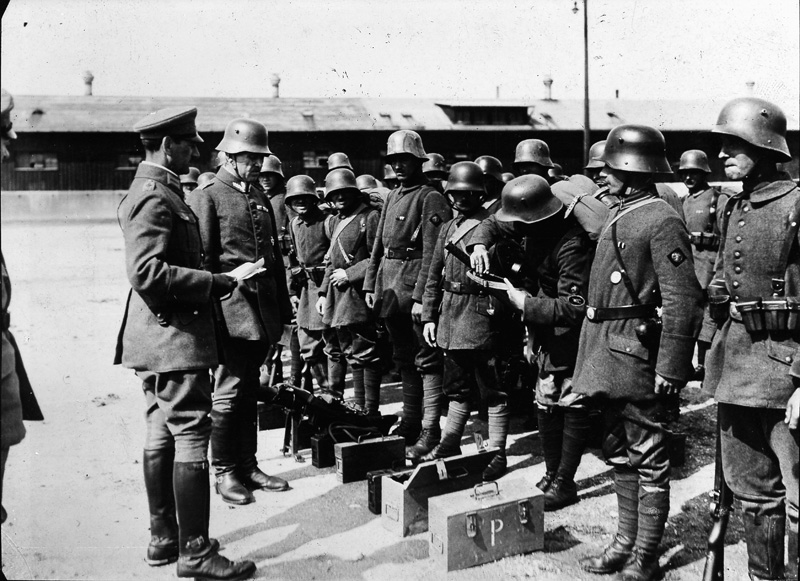Als das Kabinett Eisner die Aufstellung von Freikorps in Bayern verweigerte, sicherte sich Oberst Franz von Epp, einst Kommandant des Bayerischen Leibregiments, die Unterstützung der Regierung Noske und gründete am 11.2.1919 in Thüringen das „Bayerische Freikorps für den Grenzschutz Ost“. Den Truppen wurde die Übernahme in die Bayerische Reichswehr versprochen. Zwei Monate später umfasste das Freikorps 363 Offiziere, 219 Unteroffiziere, 425 Mann, verfügte über artilleristische Ausrüstung und nahm im württembergischen Verband Haas an der Niederschlagung der Räterepublik München teil. Wie preußische Gerichtsoffiziere berichteten, waren Angehörige des Freikorps besonders gewalttätig, so etwa am 6.5. im Keller des Hauses Karolinenplatz 5, wo sie 21 katholische Gesellen misshandelten und erschossen, die sie für Spartakisten hielten (BayHStA, GruKo 4, 268).
Im Mai 1919 wurde das Freikorps in die Bayerische Reichswehr als Schützenregiment 21 eingegliedert und Epp zum Führer der Brigade 21 befördert. In dieser Position konnten Epp und sein Hauptmann Ernst Röhm große Waffenbestände der Reichswehr den Einwohnerwehren und rechtsradikalen Wehrverbänden zuführen.
Dem Freikorps Epp gehörten viele spätere NS-Führer an, so der Generalleutnant der Polizei Adolf von Bomhard, Hitlers Adjutant Wilhelm Brückner, der „Held von Narvik“ Eduard Dietl, Hitlers Stellvertreter Rudolf Heß, der Korpsführer des NS-Kraftfahrwesens Adolf Hühnlein, Josef Meisinger, Putschist vom 9.11.1923 und Reichsdozentenführer Dr. Walther Schultze, aber auch der Handschuhfabrikant Heinrich Roeckl oder der Direktor der Diözesan-Caritas Franz Müller und andere Kleriker.


